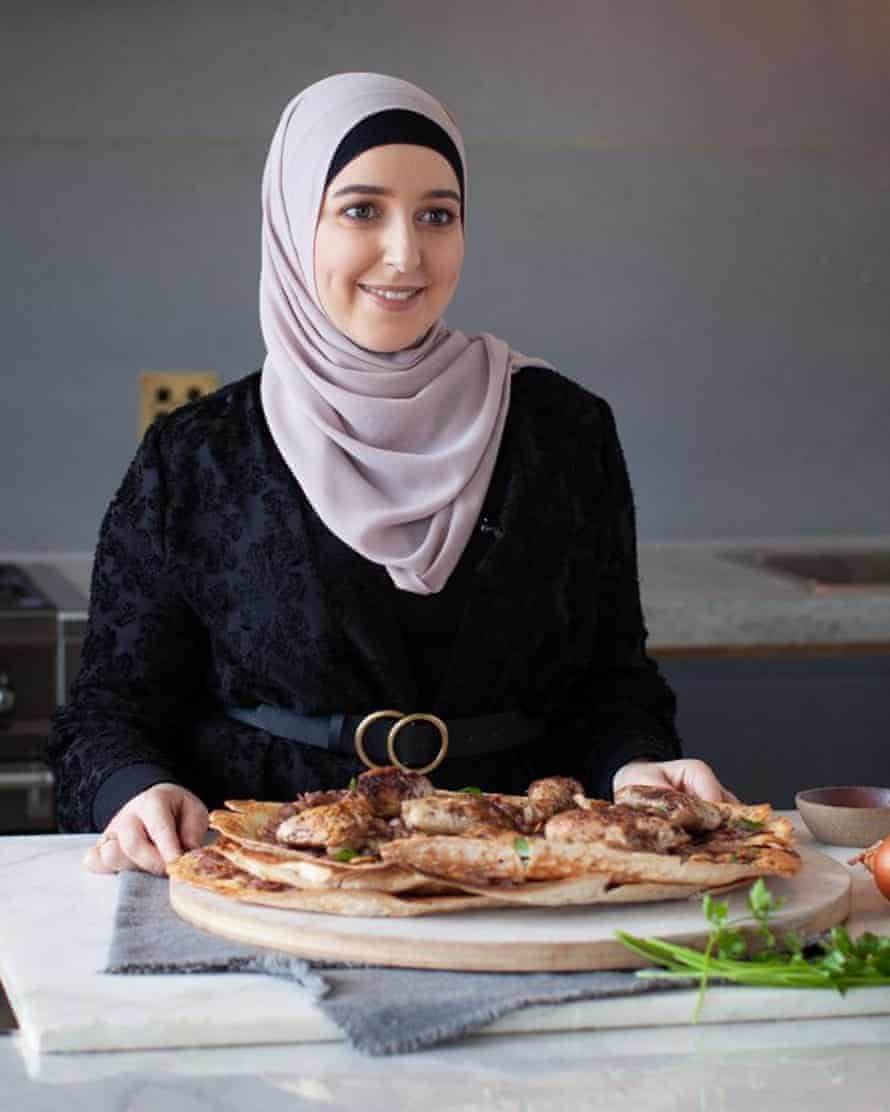
I’m a Palestinian from Jordan, married to a Palestinian from Syria, living in Australia – so my cooking is a combination of so many different cultures and traditions.
My mother’s family fled Palestine during the 1948 Palestinian Nakba. My grandparents were able to take nothing more than the key to their home and what they could carry on their backs. 750,000 Palestinians were expelled from their homes during the 1948 war, which was the beginning of the Palestinian diaspora. My mother, her five brothers and three sisters were all born in Jordan, where our extended family still lives.
My father was born in Palestine and fled to Jordan with his family during the six-day war in 1967. Neither of my parents have been back to Palestine, and I have sadly never visited either.
My parents met and married in Jordan then moved to Saudi Arabia for my father’s work. I spent my childhood in Saudi Arabia and started school there. We lived in a compound with people from all over the Arab world. Every week one family in the compound would prepare food and invite the other families over so I remember eating really exquisite dishes from Egyptian, Lebanese and Syrian cuisines.
When I was eight, my parents made the move to Australia, and I have been living in Sydney ever since. I met my husband, Khalil, in Australia. He was born in Syria and lived most of his life there but was here to complete his PhD.
We had our wedding in Jordan, where my extended family was able to attend. His family, who were living in Syria at the time, also travelled to be there. When Khalil first visited Jordan, he was faced with so many cultural challenges surrounding food. In Jordan, men eat the mansaf with their hands rather than using a spoon. They form the rice and yoghurt mix into a ball and bite into it – all without spilling a drop. Khalil wasn’t used to this, but he tried eating that way to get the full experience and to honour my family’s culture.
Our first meal as a married couple was actually prepared by Khalil: his signature spaghetti bolognese. Khalil was living with a group of his friends before we got married so he had more experience cooking. I did not cook at all as a child. When I was a teenager, my mother asked me to help her cutting up the salad and for years that was about the only thing I knew how to make.
But I grew up watching my mother and grandmother bond over cooking and after my marriage, when there was no one to cook for me, I started experimenting with food. When I wanted to cook, I was constantly on the phone with mum getting her guidance. She provided the best recipes for Palestinian and Jordanian dishes, while my mother-in-law passed down her awesome Syrian recipes on phone calls and WhatsApp. The internet helped out with all the non-traditional meals, and I learned that I loved using food to dip in and out of lots of different cultures.
Eight years later, my cooking skills have improved so much that I now showcase the dishes I make to the world, while teaching others how to make them, on Instagram.
I love how much culture shapes a person’s food experience, and I’m so glad my cooking is now infused with a whole variety of different cultures from all over the world.
Walla’s Palestinian msakhan
1 whole chicken, cut into pieces
500g onions
3 pieces of Afghan bread
1 cup sumac
½ cup olive oil, plus extra for toasting almonds
1 tsp black pepper
1 tsp salt
1 tbsp mixed spices
Handful of cardamom pods
A few bay leaves
Oil spray
Almonds for topping
Place the chicken pieces in a pot, cover with water and add one diced onion, the mixed spices, cardamom pods and bay leaves. Cook on the stove top (or in a pressure cooker) until the chicken pieces are fully cooked. This takes approximately 20 minutes in the pressure cooker; or about 45 minutes in a regular pot, keeping the heat low-to-medium, so it says on a gentle simmer.
Dice the remaining onions then fry them in a seperate saucepan over medium heat, using half a cup of oil until the onions wilt – this should take approximately 10 minutes. Add salt and pepper to taste, remove from heat then add the sumac to the onions and mix.
In a seperate pan, fry the almonds in some oil for a couple of minutes, until golden.
Turn your oven to the grill setting to preheat, then spread the onion mix over a piece of bread.
Place the bread and onion under the grill for a couple of minutes, until the onions begin to caramelise and turn slightly golden. Pay close attention so the bread and onions do not burn. Sprinkle fried almonds on top. Add another layer of bread and onion, and repeat the grilling process, layering the pieces of bread on top of each other. Once each layer is toasted, remove the bread from the oven.
Place the cooked chicken pieces on baking tray, spray them with oil and sprinkle sumac on top. Place the chicken under the grill until the skin achieves a golden colour.
Place chicken pieces over bread and garnish with remaining nuts. Enjoy!
-
Married and mum to three little girls, Walla is a primary school teacher, self-taught cake artist, dessert maker (@bakemycakeby_walla) and an Instagram food blogger (@walla_abueid).
-
You can find this recipe and other Australian-Muslim recipes and stories on the Recipes for Ramadan website; and follow the project on Instagram, Facebook and YouTube.



